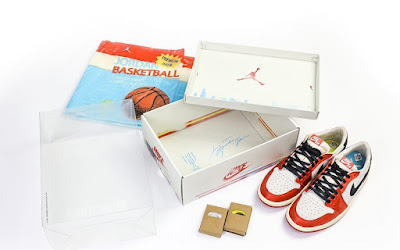Sneaker culture is a bustling community of fanatics, collectors, and manufacturers. We all get hyped when a new pair of J’s come out or when an old-school sneakerhead finds an original box from the 1980s.
But being a sneakerhead is about more than buying shoes and showing off your collection. Sneakerheads influence the manufacturing industry and have a huge impact on the creative decisions that designers make.
Today, more sneakerheads are interested in giving back to the environment. This means that manufacturers like Adidas and Nike are shifting their purpose, and are increasingly interested in giving consumers a product that feels great on their feet and on their conscience.
Waste & Ecological Harm
It’s no secret that manufacturing and producing shoes harm the environment. 20 billion shoes are produced around the world every year, and footwear is responsible for 1.4% of all global greenhouse gasses.
The average shoe produces around 30 pounds of CO2 during manufacturing and shipping, and sneakers may be more carbon-intensive due to complex designs and bright colors.
Sneakers often end their lives on waste piles — even though many of our favorite shoes are partly recyclable. This is a major issue, as the average pair takes between 30-40 years to decompose.
Fortunately, sneaker culture has woken up to the environmental impact of shoe production, and calls for the sneaker industry to become more sustainable are getting louder.
As a result, major players like Adidas, Nike, Reebok, and AllBirds are recycling, reselling, and changing the way they make our favorite shoes.
Recycling
Sneakers are typically made from a complex combination of plastics and synthetic materials. This makes recycling very difficult, as the components that could have been recycled are often blended with unrecyclable materials.
So, when you’ve worn through the heels and frayed every lace on your favorite J’s, you probably say “goodbye” to them by offering them up to the garbage gods.
However, some shoe companies are taking their plastic problem seriously. Brands like Sevilla-Smith create shoes from entirely organic materials and skip the synthetic processes altogether.
Meanwhile, other brands like Adidas are trying to close the loop by using materials like thermoplastic polyurethane that is partly recyclable.
Nike is a brand that is synonymous with sneaker culture and is considered to be the industry leader by many.
They’ve recently thrown their weight behind recycling, and now run recycling programs in locations across the world.
The process is user-friendly, as sneaker enthusiasts simply have to drop off their old shoes, at which point Nike experts will choose to either recycle the product or clean and resell it.
Reselling
Second-hand shoes may have drawn a few cringes in days gone by. However, almost every brand now runs a refurbished line and knocks out used shoes that look just like the originals.
Vivo — a barefoot shoe company — is leading the charge towards slow fashion and refurbished shoes. Their “ReVivo” project is popular amongst many sneakerheads who prefer a lower profile fit, and give folks a chance to try out their product without breaking the bank.
ReVivo shoes are ranked on a scale from “Good” to “Never Worn” so consumers know exactly what they’re getting before they place their order.
Consumers who embrace slow fashion must educate themselves before buying from brands and find out which materials they use. There’s no point in buying from a business that pitches itself as “green” if they use harmful dyes during the production process.
Avoiding suspicious claims and only buying second-hand can reduce sneakerheads' environmental damage and show big brands that the community won’t be swayed by greenwashing efforts.
Donation schemes can also help break the financial barrier that would-be sneaker collectors face. A single pair of premium sneakers will set owners back hundreds of dollars.
Resold sneakers, on the other hand, are sold at a fraction of the price and often come with the original tags still attached.
The push for more reselling has even had a lasting impact on manufacturing methods, as many companies have changed the way that they produce shoes to cater to the second-hand market.
Changes to Manufacturing
Buying second-hand sneakers and recycling old pairs has a massive impact on the sneaker industry. Manufacturers have to account for the rise in eco-consumerism and deliver goods that have a minimal impact on the environment.
Eco-friendly manufacturing is good for business, too. Businesses that adopt sustainable fashion now will save money in the future and will gain a competitive advantage over competitors that are slow to change.
Likewise, marketing departments can use the changes that businesses make to produce compelling, honest copy that tugs at sneakerheads' hearts.
***
Sneaker culture has always been dynamic and up-to-date with the latest trends. Today, that means that sneakerheads are demanding more sustainable, eco-friendly options.
As a result, manufacturers are now recycling their products, reselling refurbished shoes, and changing their manufacturing processes to create sneakers with minimal ecological harm.













































